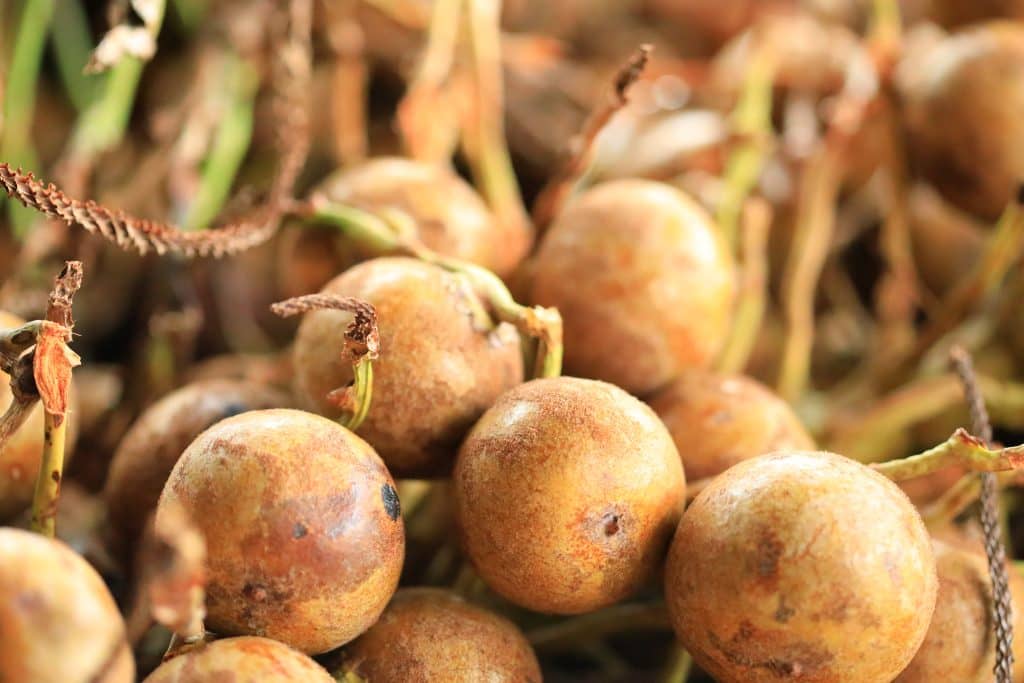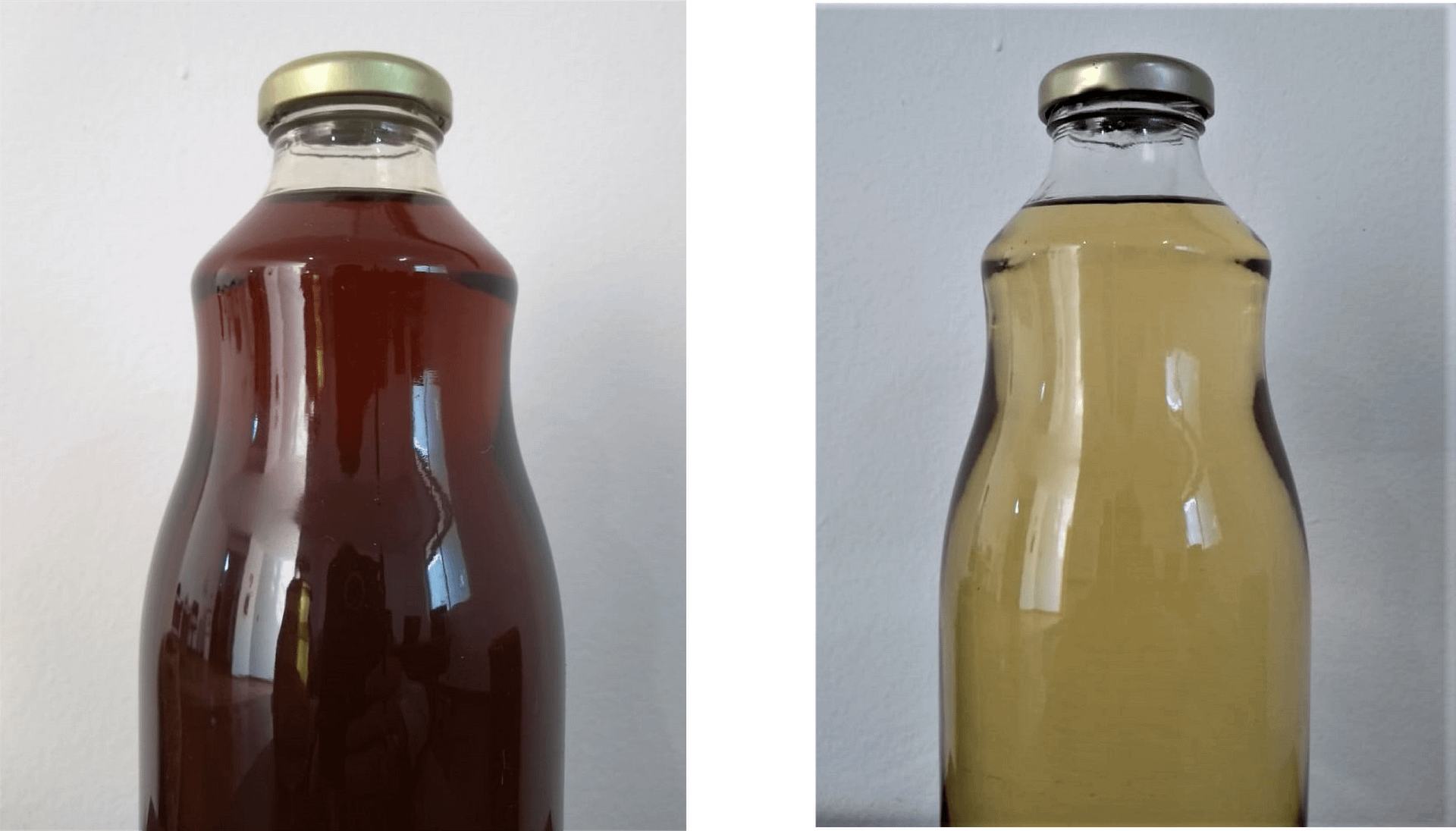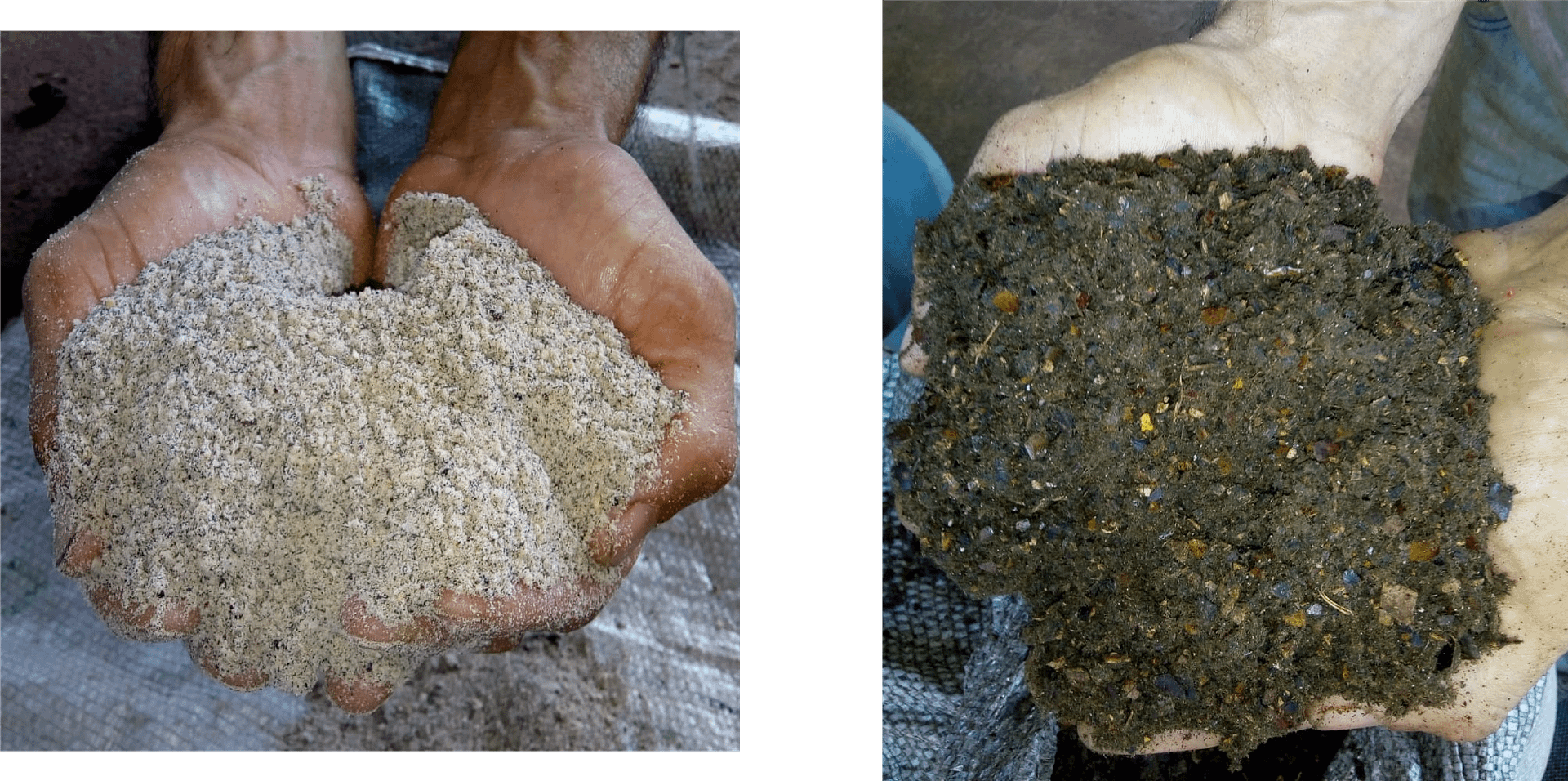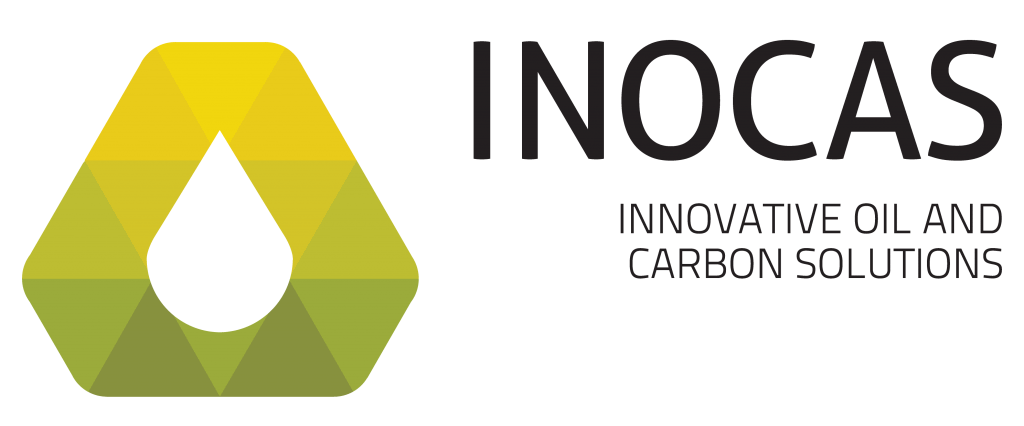PRODUCTS
SUSTAINABLE PRODUCTS OF CERRADO BIODIVERSITY

The Macaúba:
Macaúba is the palm with the largest geographical dispersion in Brazil, being especially found in the cerrado biome. This palm tree reaches about 20 meters high and produces a coconut, consisting of peel, pulp, endocarp and kernel. Each palm can produce on average 90 kg of coconut in peak production. From the processing of macaúba fruit are extracted two types of vegetable oil (pulp and kernel), two types of pressing pie (pulp and kernel) and the endocarp.

Vegetable Oils:
The reddish-colored macauba pulp oil, due to the large amount of beta-carotene, is comparable to palm oil, but with a higher percentage of oleic acid. This oil is recognized for its use in the manufacture of biofuels, food and for its high saponification index, very indicated in the production of soaps and detergents.
Macaúba kernel oil is comparable to palm kernel oil, with lauric acid being its main component. This noble oil has excellent flavor and a good antioxidant, antiseptic and healing action, ideal qualities for the manufacture of food and cosmetics.

Press cakes:
The macauba Kernel press cake has a high vegetable protein content (from 22 to 50%), sometimes even higher than the protein content of soybean meal. With great potential for the manufacture of animal feed, it can also be used in food production.
The macaúba pulp press cake has a large amount of fiber and a vegetable protein content and characteristics like corn bran, with about 8% protein. It has great potential in the manufacture of animal feed, especially for ruminants.

